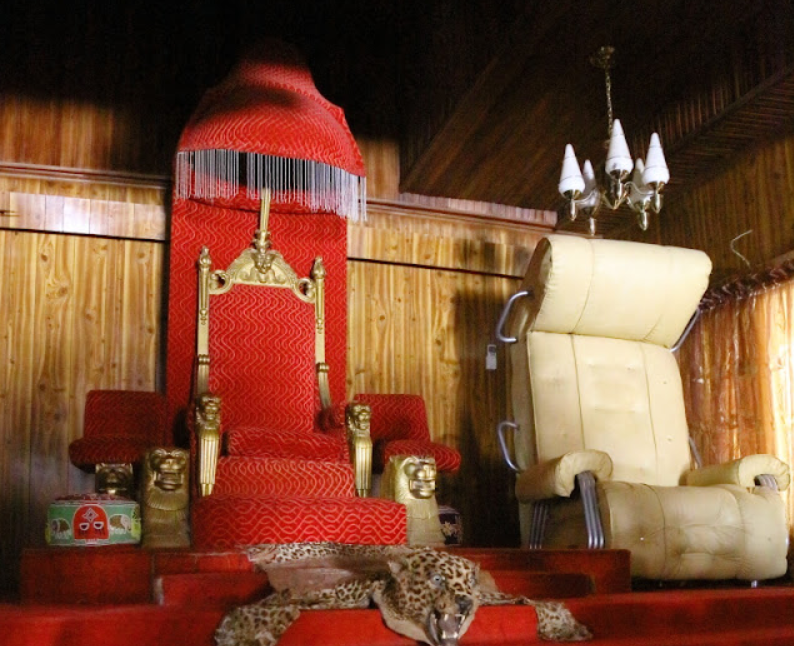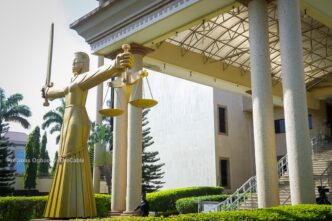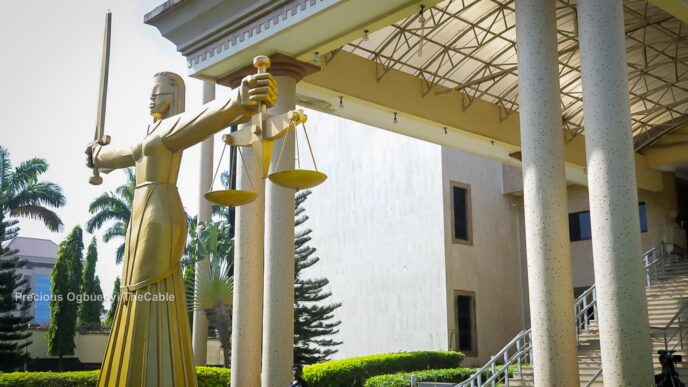BY REMI LADIGBOLU
My father, a prominent Christian leader, once visited the Oyo Museum, where artefacts and relics of the old Oyo Empire—such as the Opon Ifa, masquerade masks, and Sango outfits—were displayed. He described the museum as a centre of culture rather than religion. This perspective underscores the importance of distinguishing culture from traditional religion in Yoruba society.
In my view, the Yoruba must not remain anchored to the past by conflating cultural heritage with traditional religious practices. It is crucial to establish a clear boundary between the two, especially in matters as significant as kingship.
Traditional religion, with its various “denominations” and deities, should be regarded as equal to contemporary faiths like Christianity, Islam, or Hare Krishna. Modern society has moved beyond rigid religious identities, progressing toward a multi-religious or even nearly non-religious landscape. This evolution has significant implications for the institution of kingship in Yorubaland, which has consistently demonstrated an inclusive and culture-focused character.
The selection of kings in Yorubaland has always been rooted in cultural preservation rather than religious considerations. Nearly all Yoruba kings in recent memory have identified as either Muslims or Christians. For instance, in Oyo, the historical political headquarters of the Yoruba, every Alaafin since Alaafin Adeniran Adeyemi II has been a Muslim. During the recent Alaafin succession contest, there were even claims among some parties that only a Muslim could ascend the throne. To reinforce this trend, the soon-to-be-coronated Alaafin, Abimbola Akeem Owoade, proudly bears an Islamic name.
Advertisement
Similarly, the late Olubadan and Soun identified as Muslims, while the current Olubadan and Soun are Christians. The Awujale is Muslim, while the Alake is Christian. Many of these monarchs bear names reflecting their Christian or Islamic heritage. This diversity illustrates that Yoruba kingship transcends any single religion.
The historical and contemporary reality of Yoruba kingship contradicts the argument that only adherents of traditional religion, such as Isese, are qualified for the throne. Unless one wishes to argue for a significant overlap between Islam and traditional religion—a proposition that seems highly improbable—this claim lacks merit.
For example, the process of selecting the Alaafin, arguably the most prominent Yoruba monarchs, has long been governed by cultural principles. The 1961 Alaafin Chieftaincy Declaration places the responsibility for choosing the king exclusively in the hands of the Oyomesi, the kingmakers of Oyo. There is no mention of consultation with the Ifa Oracle or reliance on any form of divination in this process.
Advertisement
The Oyomesi, whose members represent diverse religious backgrounds—including traditional worshippers, Christians, and Muslims—serve as custodians of Yoruba culture, not traditional religion. This diversity underscores the inclusive nature of Yoruba kingship, reinforcing that the king is a leader of all Yoruba people, irrespective of their faith.
Since the demise of Alaafin Oranyan, the Ifa Oracle has had no documented role in the selection of an Alaafin. Instead, the Oyomesi evaluates eligible candidates, typically the Aremo (crown prince) or, occasionally, another prince (Akeyo), based on qualifications that preserve the cultural essence of the throne. This practice ensures stability and prevents manipulation by diviners whose methods lack objective verification.
Given this historical precedent, it is clear that religion should no longer be an essential factor in selecting Yoruba kings. After a candidate has satisfied all commonly agreed-upon criteria, the focus should shift to their depth of knowledge about Yoruba culture and their commitment to promoting, defending, and preserving it. A king’s ability to preserve and defend the heritage of the Yoruba people is far more critical than their personal faith.
For instance, selecting a king solely because they are a Sango or Ifa worshipper, without considering their qualifications or cultural understanding, would undermine the integrity of the throne. Yoruba kingship must remain a symbol of unity and cultural preservation, not a reflection of religious exclusivity.
Advertisement
Moreover, the term “traditional rulers” is a misnomer. Yoruba kings are natural rulers—leaders of all their subjects, regardless of religion. While they may privately observe the practices of their faith, their public role is to represent and unify their people, not to serve as a religious figurehead.
By embracing a pluralistic and inclusive perspective on kingship, Yoruba society can preserve its rich cultural heritage while adapting to the realities of a modern, diverse world. Separating culture from religion in the institution of kingship is not only practical but also essential for fostering unity and progress in Yorubaland. The Yoruba people must decisively redefine their understanding of kingship to honour their past while embracing the future.
Ladigbolu is a Lagos-based journalist.
Advertisement
Views expressed by contributors are strictly personal and not of TheCable.
Add a comment










